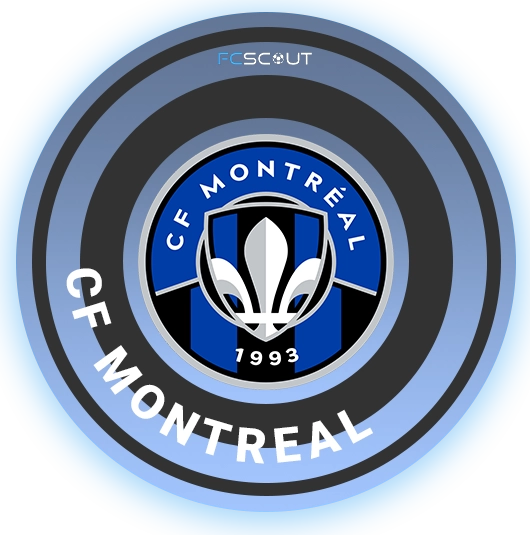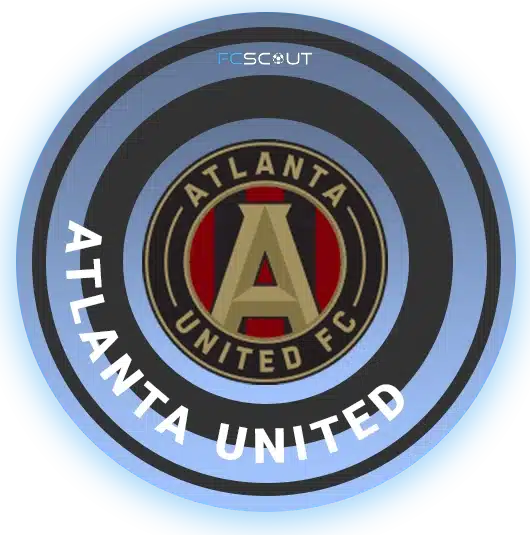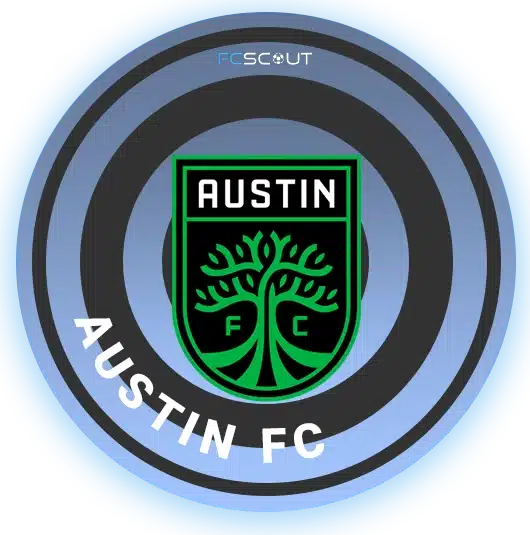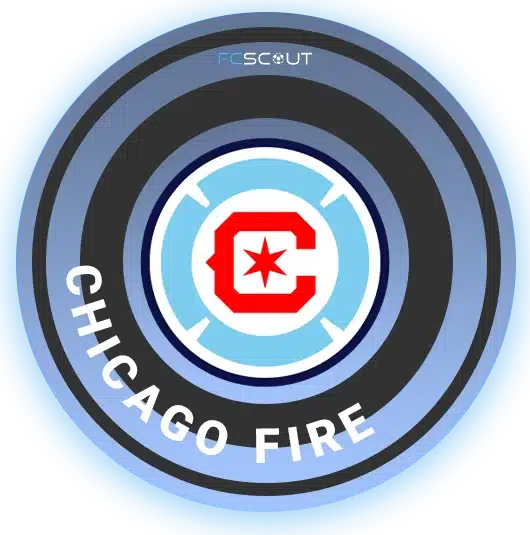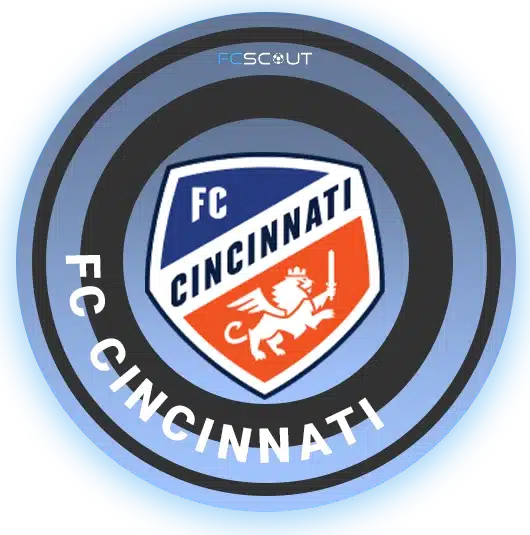CF MONTREAL CLUB GUIDE
History, Stadium, Players, and More!
Discover the world of soccer with fcscout.com, your go-to scout for club tryout information, club guides, player profiles, in-depth product reviews, and more.
1000+
team reviews of trending clubs
2M+
active users
annually
1000+
profiles in our player database
Explore
CF Montréal
CF Montréal is a Canadian professional soccer franchise based in Montreal, Canada. The team competes in Major League Soccer (MLS) as a member of the league’s Eastern Conference.
CF Montréal History
CF Montréal, originally known as the Montreal Impact, is a professional soccer club based in Montreal, Quebec, Canada. The club was founded in 1992, initially competing in the American Professional Soccer League. In its early years, the Impact quickly established itself as a competitive team, winning the APSL title in its inaugural season. This early success helped to cultivate a strong fanbase and established the Impact as a mainstay in the North American soccer landscape.
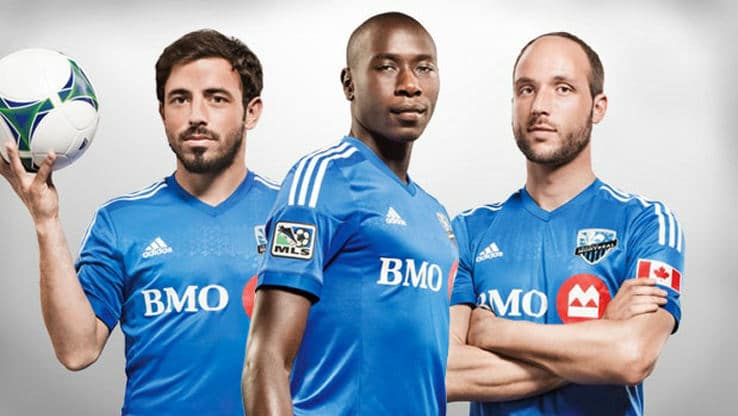
In the following years, the Impact went through various leagues, including the USL First Division and the NASL, reflecting the evolving structure of North American soccer. Despite these changes, the club continued to perform well, winning several league titles and domestic cups. This period was marked by significant achievements, such as multiple Canadian Championship victories, which further solidified the team’s reputation in Canadian soccer.
The turning point for the club came in 2012, when the Impact joined Major League Soccer (MLS), North America’s premier professional soccer league. This move to MLS marked a new era for the club, bringing increased exposure and higher levels of competition. In their inaugural MLS season, the Impact performed commendably, showcasing their potential in the top tier of North American soccer. The club’s transition to MLS was seen as a step forward for soccer in Quebec and Canada.
Throughout its time in MLS, CF Montréal has had several notable moments, including playoff appearances and memorable matches against top North American teams. The club has been known for its strong home performances, with passionate support from its fans at Saputo Stadium. The team has also been active in international competitions, most notably reaching the final of the CONCACAF Champions League in 2015, where they narrowly missed out on the title in a dramatic series against Club América from Mexico.
In January 2021, the club underwent a significant rebranding, changing its name from the Montreal Impact to Club de Foot Montréal (CF Montréal). This change was part of a broader strategy to refresh the club’s image and strengthen its identity within the community and the wider soccer world. The rebranding sparked mixed reactions from fans and observers, but it represented a new chapter in the club’s history, emphasizing a forward-looking approach and a deeper connection with the city of Montreal.
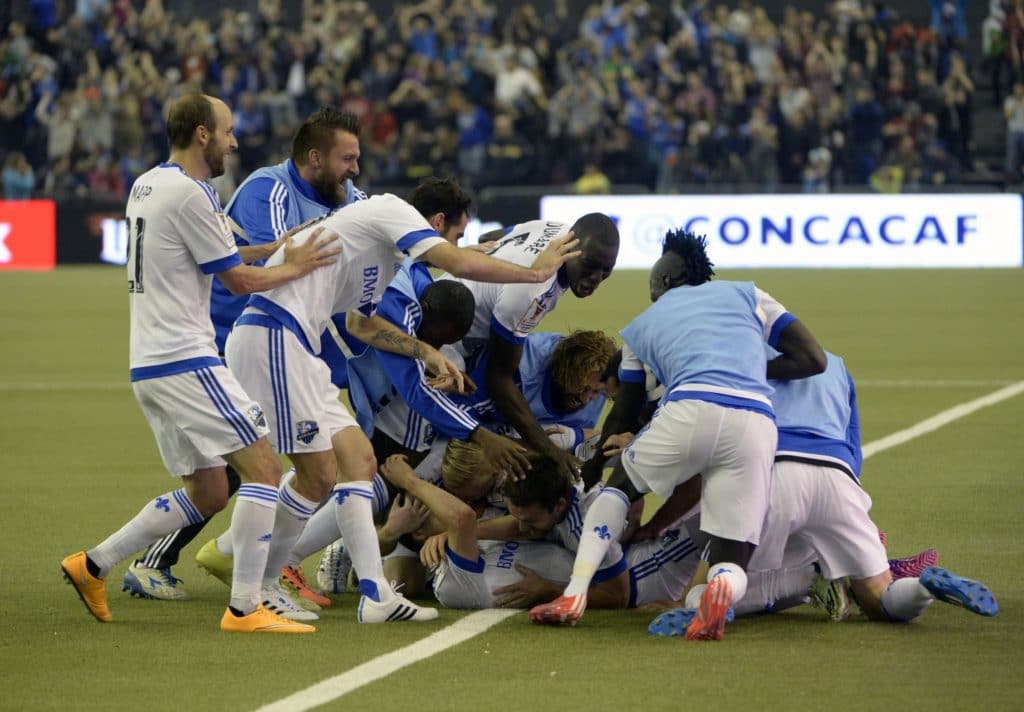
As of my last update, CF Montréal continues to compete in MLS and remains an important part of the Canadian soccer scene. The club has been focusing on developing local talent and strengthening its academy, which has produced several players for the first team and national teams. Off the field, CF Montréal remains committed to its community, contributing to various local initiatives and fostering a strong connection with its fans. The club’s history, from its early days to its current status in MLS, reflects the growth and development of soccer in Montreal and Canada.
Montreal Impact Youth Development Academy
The Montreal Impact Academy is the cornerstone for the development of players wishing to reach the Montreal Impact’s MLS team. After its first years of existence, the development structure aims to produce not only squad players, but also starters for the first team that will have a positive impact on the game.
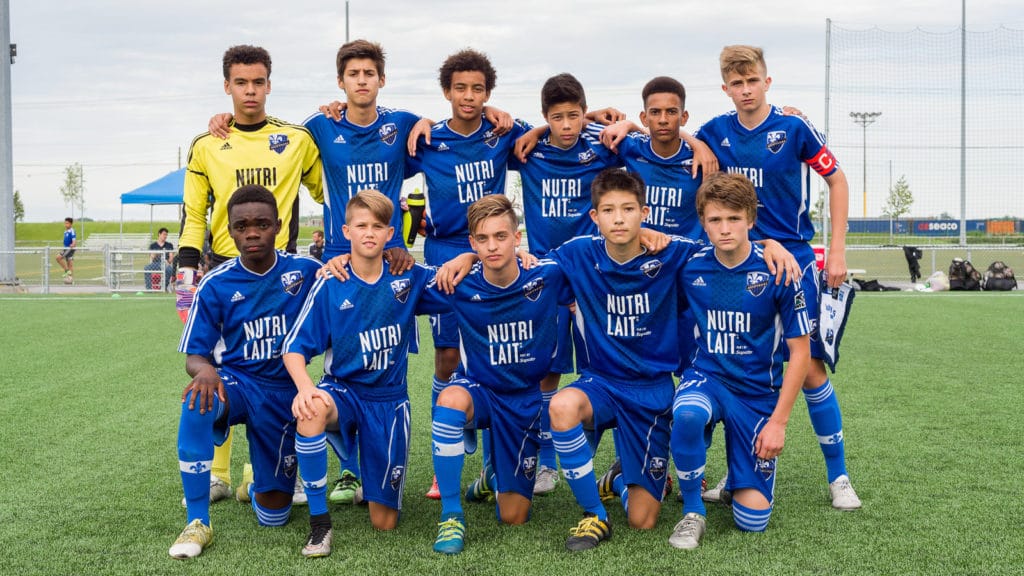
Beyond the athletic structure, the Academy is also a living environment, with passion and emotions, where efforts, perseverance, friendship and humility are experienced daily to strengthen our club’s identity. These values are key to growing within this club.
Montreal Impact Academy: Sports Program
The sporting structure includes around 180 young players wearing the Montreal Impact colors with four Academy teams (U23, U17, U15 and U14) and five Pre-Academy teams (U9 to U13). This youth development setup has a single goal: developing starters for the first team.
The student-athlete joining the sport-études program at the Montreal Impact Academy gets:
- High-level soccer training with qualified educators.
- Access to the Montreal Impact infrastructure.
- Teaching of the club’s sporting and social values.
- Full development divided into four aspects: physical, psychological, technical and tactical.
- A 12-month sports training and coaching program (including rest periods).
- Access to the club’s athletic specialists: fitness coach, mental coach, doctor, invited coaches, nutritionists.
- Different meetings with established professionals.
A full team
A staff of over 20 people works full time in the technical, administrative, medical, physical preparation and mental preparation fields to ensure daily progress for the Academy players.
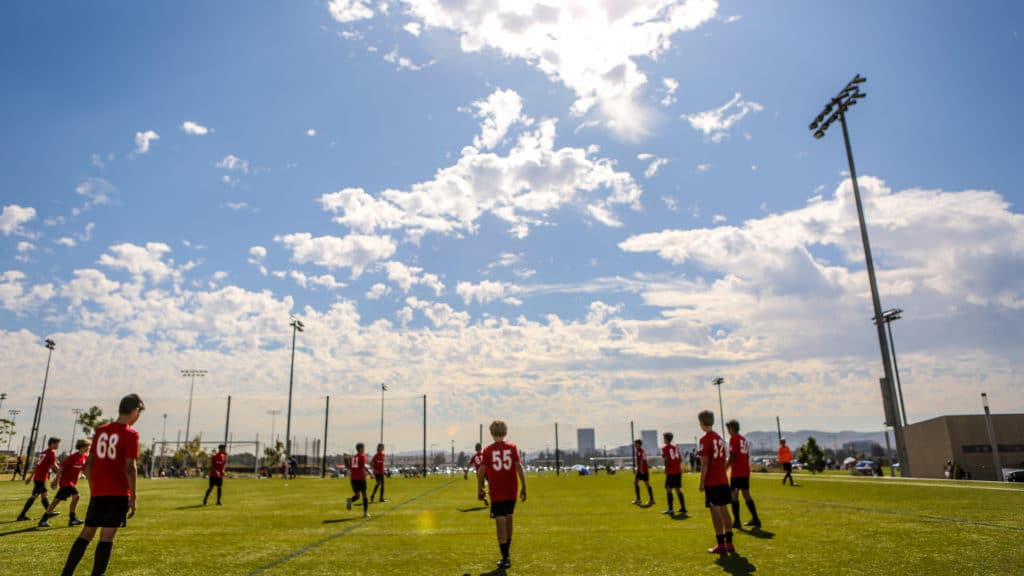
A regular and individualized medical follow-up
Medical follow-up is an essential part of the development of a young player. The Academy provides individualized follow-up of their players to prevent injuries and put them in the best possible physical conditions. Follow-up is covered by a head therapist, an assistant therapist and two fitness coaches. Our therapists attend every training session and game, and they discuss with coaches and players on a daily basis to detect any problem, prevent and treat injuries and provide advice to stay healthy.
A head physician and a general practitioner are also available for the players.
Regular reviews
Biomechanical evaluations and fitness tests are conducted on every player throughout the year. Three times per year, 50-point individual reviews are done with the coach, the player and his parents.
Montreal Impact Academy: School Program
The sport-etudes program is unique in North America and specific to Quebec. It’s an essential tool to manage the schedule of a standard academic path while pursuing high-level athletic development. This program is recognized and sanctioned by the Ministère de l’Éducation et de l’Enseignement supérieur and by the Quebec Soccer Federation.
The program has a strict rule: prioritize academic success before athletic success.
Players have to maintain a good academic record, with a minimum general average of 75% and at least 65% in mathematics and French.
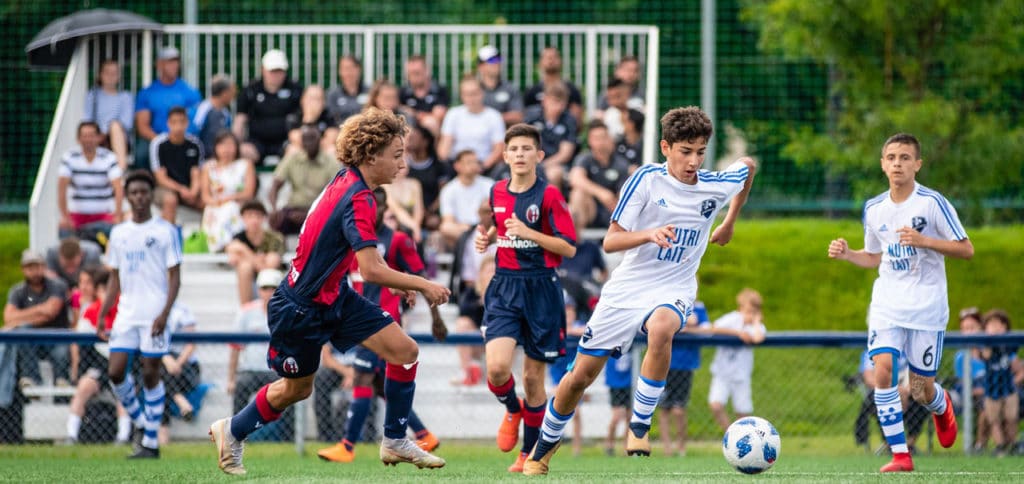
During his formation, the student-athlete will have access to:
- an education adapted to the training and competition schedule;
- a system in place for classes missed because of sporting activities;
- a supervised and mandatory study period every day;
- recovery classes at the request of the coach, teacher, parent or student.
Schedule and holidays
From Monday to Friday, class ends at 12:25pm and are followed by training. The schedule is adapted during exam periods and according to the league calendar. All players have two weeks off for the winter holidays and three weeks in the summer, between July and the beginning of August. During summer, training sessions at Centre Nutrilait are held from 1:30pm to 3pm for the U14s and U15s, and from 3pm to 5pm for the U17s and U23s.
Montreal Impact High schools
The Impact has partnerships with five different high schools in Montreal:
- École secondaire Édouard-Montpetit (French)
- École secondaire Antoine-de-Saint-Exupéry (French)
- Collège de Montréal (French, private)
- Lester B. Pearson High School (English)
- John Rennie High School (English)
Our partner schools have a lot of experience in sport-etudes programs as well as great proximity by their pedagogical team with players for personalized follow-ups, for class and exam recovery and tutoring programs. There is also close contact between the schools and the Academy, in order to monitor the player’s behavior, along with communication with parents.
Our student-athletes from our five partner schools are grouped in classes with other athletes registered in sport-etudes programs.
Cegep
The Academy strongly encourages its players to continue their academic path by going to a sports-etudes alliance cegep. This allows the player to tailor his course schedule around training hours. For more information: www.alliancesportetudes.ca.
University
Some universities like UQAM and Université de Montréal/HEC recognize the status of Athletic Excellence and allow us to keep some flexibility for the classes and exams, according to the schedules.
Transportation
The morning transportation to go to school and to come back from practice at the end of the day is the family’s responsibility.
Transportation between the school and the training centre is offered by an Academy shuttle for the Édouard-Montpetit and Lester B. Pearson high schools. For Antoine-de-St-Exupéry high school, the school provides the shuttle service. For players going to John Rennie High School, there is no shuttle; public transport must be used when possible.
Please note that the players are training from April to November at Centre Nutrilait, located at 411 avenue Létourneux, Montreal.
From November to April, they train at Complexe sportif Marie-Victorin, located at 7000 boulevard Maurice-Duplessis, Montreal.
Outside of school hours, players have to get to the training sessions on their own.
Costs
With a cost of admission more for symbolic purposes, the Impact looks to confirm the seriousness of the candidates who wish to partake in the Academy’s developmental structure. At the Montreal Impact Academy, talent should take precedence over financial resources. Consequently, upon completion of grade 8, the student-athlete will participate in the program free of charge, upon confirmation of his capabilities and commitment to the Montreal Impact after the first two years of high school.
Grade 7: $700
Grade 8: $500
From grade 9 onwards: free
Government aid is available for players in high school (whose parents are Quebec residents, for a 10-month period).
Montreal Impact Pre-Academy
The Pre-Academy is:
- A developmental program for young soccer players from ages 8 through 12.
- For young players living in the Montreal and surrounding areas (20 km around Stade Saputo).
- A complete season from mid-April to March.
- Two to four training sessions (and one game) per week, depending on the age group.
- 80 players, five teams: U9, U10, U11, U12, U13.
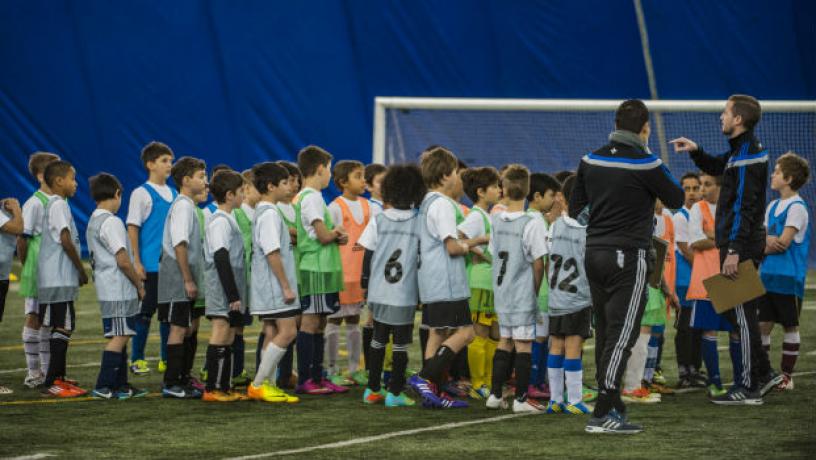
Objectives
- Share the bases of the philosophy and playing identity developed through the Montreal Impact Academy.
- Develop young athletes that are responsible and blooming citizens in their social life, able to transmit the sport’s fundamental values: willingness to work, surpass oneself, respect the rules and respect of others.
Competitions
- Summer games are played mostly at the Centre Nutrilait, during the weekend.
Technical supervision
- A Pre-Academy technical coordinator and a Pre-Academy administrative coordinator
- One head coach and one assistant coach per team
- A goalkeeper coach for all teams
Every Montreal Impact Pre-Academy player will receive:
- A high-level soccer training with qualified coaches
- Access to a professional club structure
- Education of social and sports values advocated by the club in each of its teams
- Integral development of the four facets: physical, psychological, technical and tactical
- Training and sporting management programmed over 12 months (including rest periods)
- Access to and monitoring by the club’s athletic specialists: the Montreal Impact Academy coaches.
Registration cost (per year)
- U8-U9-U10: $2000
- U11-U12: $2350
Possibility to pay with a deposit at registration and three more payments in the three following months.
For more information – Receipt for Children’s fitness tax credit
These costs include:
- Field rental + registrations to leagues and tournaments
- Full Adidas training kit
- Pre-Academy coaches’ salaries
Several activities will also be offered during the season to players and parents.
Further information on the Pre-Academy for Montréal Impact can be found by clicking here.
Montreal Impact The Academy Institute
Throughout the year, our Academy members are involved in activities outside of soccer as part of the Academy Institute, which will be used to help our players in their development, their personal culture and as a tool to become a professional player.
For example, players will participate in various courses that will help them with their personal development as a player. This could include dance and zumba classes to work on their coordination and to remove them from their comfort zone, as well as classes on hygiene, communication, the history of the club, soccer culture or even information sessions with top-level athletes from other disciplines.
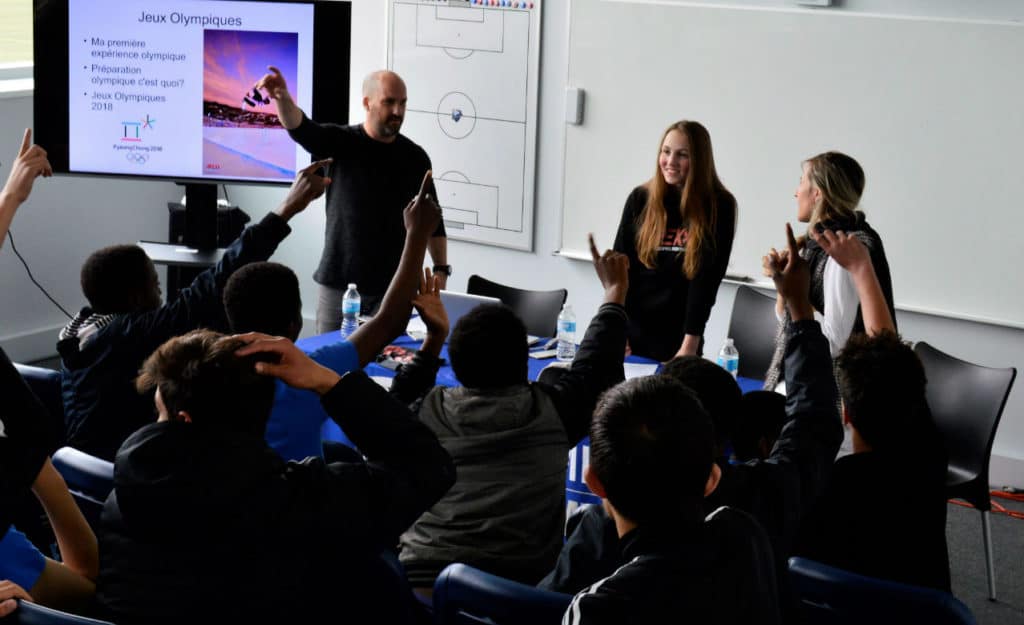
The goal of these classes is to make young Montreal Impact players more autonomous in their preparation. The Institute adapts itself to age groups, with classes on a better understanding of one’s self and the club’s history for the U14 and U15 groups, and an emphasis on invisible preparation for the U17 and U23 teams.
Montreal Impact Recruitment and Detection Camps
The Montreal Impact Academy has two main methods of recruitment, which include open detection camps and screening calls.
- Open detection camps
These tryouts are organized by the Montreal Impact and open to all the players (foreign players also). The training sessions help the technical staff identify players that fit the Academy’s profile. The tryouts are carried out over a few stages. Registration can only be done online on the Academy’s website (registration fee to pay online).
- Screening cells
Our coaches and scouts are present throughout the province, and our vast network of contacts within the Montreal Impact organization allows for the club to be on the lookout for players in all regions and all competitions in Quebec. When discovered, a player is offered a chance to play with one of the Academy teams, or offered a chance to attend one of the detection camps.
For more information on upcoming detection camps, please click here.
Montreal Impact Foreign Players
Tryouts are open to foreigners but the club will not be responsible for any fees such as flights, accommodations, food, nor will the club issue any official letter of invitation.
If a foreign player is selected following the tryouts, he must also ensure that he can bear the various costs related to his stay: tuition fees (optional, only if the player wishes to continue his studies) for foreigners (approximately $9 500 a year), the required student visa (roughly $1 500), lodging, meals and transportation (about $10 000 a year). The club will not be responsible for any of these expenses.
The Montreal Impact (French: Impact de Montréal) are a Canadian professional soccer team based in Montreal, Quebec. The Impact competes as a member of the Eastern Conference in Major League Soccer (MLS). The team began play in 2012 as an expansion team of the league, being the league’s third Canadian club, and replaced the North American Soccer League team of the same name.
In 2015, the Impact became the second MLS club, and first Canadian club, to advance to the final of the CONCACAF Champions League, in its current name since 2008, where they finished runners-up in the two-game aggregate goal series against Club América. The Impact won the Canadian Championship in 2013, 2014 and 2019. The club plays its home games at Saputo Stadium and is coached by Thierry Henry.
Montreal Impact Recruitment Trials
At the time of this writing, there is no official publishing’s on CF Montréal trials. Please come back at a later date while we monitor this club or click here to visit their official recruitement news section.
CREATE A FREE RECRUITMENT PROFILE
Click the ‘LEARN MORE’ button below to take your career to the next level and create a fcscout.com recruitment portfolio to help clubs, coaches, agents, and scouts easily find you. For a limited time, we are offering this service for free!
CF Montréal Colors & Badge
CF Montréal’s team colors are black, blue, and silver. These colors are prominently featured in the team’s apparel and branding, symbolizing the club’s identity and heritage.
The badge of CF Montréal, unveiled during the 2021 rebrand, is a circular emblem that represents the city and the club. The primary elements of the badge include a snowflake, which references Montreal’s northern climate and distinct seasons. The snowflake is composed of arrows pointing outwards, symbolizing the club’s outreach and community impact. Additionally, the badge features a stylized letter “M” in the center, representing Montreal. The color scheme of the badge maintains the black, blue, and silver palette, aligning with the club’s traditional colors.
The redesign and elements of the badge aim to reflect the club’s connection to Montreal’s culture, history, and values while also marking a new era for the team. The use of the snowflake and the specific colors are intended to differentiate CF Montréal from other teams and highlight its unique identity within Major League Soccer.
CF Montréal Kit
CF Montréal’s kit typically reflects the club’s primary colors of black, blue, and silver. The home kit usually features a dominant color, often black or blue, with contrasting designs or accents in the other colors to highlight the team’s identity. These accents may appear on the sleeves, collar, or as stripes or patterns across the kit. The away kits tend to utilize the same color palette but often invert the primary and secondary colors or use a lighter shade to distinguish them from the home colors.
The design of the kits can change from season to season, with new patterns and styles introduced to keep the look modern and fresh while maintaining the team’s traditional color scheme. The kits not only represent the team on the field but also serve as a symbol for fans to show their support.
In addition to the colors and design, the kits usually feature the club’s badge prominently on the chest, alongside the logo of the kit manufacturer and the sponsor. The design often incorporates elements that pay homage to the city of Montreal or the club’s history, further connecting the team with its roots and community.
The club’s kits are a significant part of CF Montréal’s identity, representing the team during matches in Major League Soccer and other competitions. They are also popular among fans, who wear the jerseys to show their support and allegiance to the club.
CF Montréal Stadium
CF Montréal plays its home matches at Saputo Stadium, a soccer-specific stadium located in Montreal, Quebec. The stadium was inaugurated in 2008 and is situated in the Olympic Park, near the iconic Olympic Stadium. Saputo Stadium was specifically designed for soccer, providing fans with a close and unobstructed view of the action on the field.
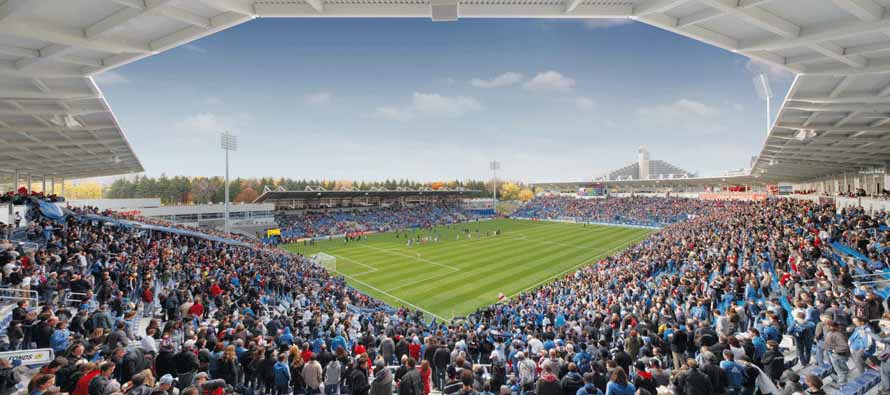
The stadium has undergone several expansions and renovations since its opening to enhance the fan experience and increase its capacity. Originally seating around 13,000 spectators, the capacity was increased to over 20,000 following expansions to accommodate the growing fan base and the club’s move to Major League Soccer in 2012. This makes it one of the larger soccer-specific stadiums in Canada.
Saputo Stadium is known for its intimate atmosphere and passionate fan support, making it a formidable venue for visiting teams. The stadium layout is designed to keep spectators close to the pitch, enhancing the noise and atmosphere during matches. This environment reflects the vibrant soccer culture in Montreal and provides a home-field advantage for CF Montréal.
In addition to hosting CF Montréal matches, Saputo Stadium is used for various other events, including international soccer matches, concerts, and community events. The stadium’s facilities include modern amenities for spectators, such as concessions, merchandise stores, and comfortable seating areas, ensuring a pleasant matchday experience for fans of all ages.
Overall, Saputo Stadium plays a crucial role in the identity and culture of CF Montréal, providing a dedicated space for soccer in the city and fostering a strong connection between the team and its supporters.
CF Montréal Club Culture
The culture of CF Montréal is deeply intertwined with the city’s rich and diverse background, reflecting the unique identity of Montreal itself. The club’s culture is characterized by a strong sense of community, passion for soccer, and a commitment to representing the city’s values and heritage on the national and international stages.
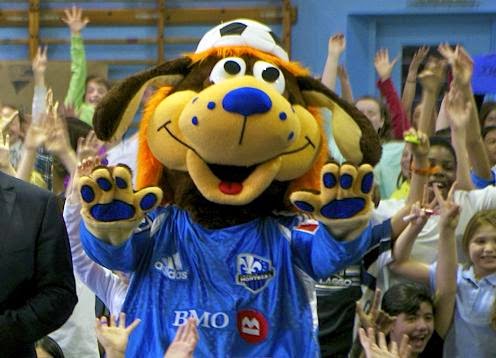
- Community Engagement: CF Montréal places a strong emphasis on community involvement and outreach. The club has various programs and initiatives aimed at supporting local communities, including youth soccer programs, charitable activities, and partnerships with local organizations. This community-centric approach helps build a strong bond between the club and its fans, fostering a sense of belonging and loyalty.
- Fan Base and Supporters’ Groups: The club boasts a diverse and passionate fan base, including several supporters’ groups such as the Ultras Montréal. These groups are known for their vibrant and energetic support during matches, contributing to the lively atmosphere at Saputo Stadium. The multicultural nature of Montreal is reflected in the stands, where fans from different backgrounds come together to support their team.
- Language and Cultural Identity: In a city like Montreal, where French and English coexist, the club embraces bilingualism and serves as a unifying symbol for fans regardless of their linguistic background. This bilingual culture is evident in the club’s communications, fan interactions, and the matchday experience.
- Rivalries: Rivalries contribute significantly to the club’s culture, with the Toronto FC rivalry being one of the most intense in Major League Soccer. Matches between CF Montréal and Toronto FC, known as the Canadian Classique, are highly anticipated events that showcase the passionate support and competitive spirit of the fans.
- International Influence and Player Diversity: Reflecting Montreal’s diverse population, CF Montréal has a history of featuring players from various nationalities and backgrounds. This diversity enriches the club’s culture and playing style, making it a true reflection of the city’s multicultural makeup.
- Youth Development: The club places a strong emphasis on developing local talent through its academy system. By investing in youth development, CF Montréal aims to nurture the next generation of soccer players, contributing to the growth of the sport in Quebec and Canada. This commitment to youth development also strengthens the club’s connection with the local community, as young players and their families become more engaged with the team.
Overall, the culture of CF Montréal is a reflection of Montreal’s vibrant, diverse, and passionate spirit. The club not only represents the city in the realm of professional soccer but also plays a significant role in the social and cultural landscape of Montreal.
CF Montréal City
CF Montréal is based in Montreal, Quebec, Canada, a city known for its rich cultural diversity, historical significance, and vibrant arts scene. Montreal is the largest city in Quebec and the second-largest in Canada, offering a unique blend of North American modernity and European charm. The city is characterized by its bilingualism, with both French and English widely spoken, reflecting Canada’s cultural dualism.
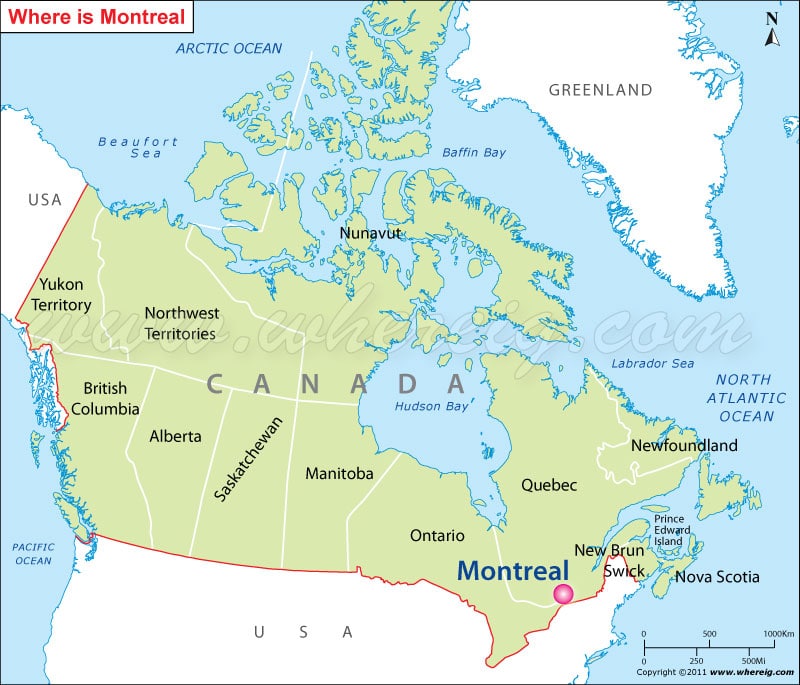
Montreal’s cultural landscape is diverse, featuring numerous festivals, museums, galleries, and theaters. The city is renowned for events like the Montreal International Jazz Festival, Just for Laughs, and the World Film Festival, highlighting its global appeal and cultural richness. The culinary scene in Montreal is also notable, ranging from traditional Quebecois cuisine to a vast array of international dishes, reflecting the city’s multicultural makeup.
In terms of sports, Montreal is passionate and has a rich history. The city is known for its love of hockey, with the Montreal Canadiens being one of the oldest and most successful teams in the NHL. However, the introduction and rise of CF Montréal have significantly contributed to the growth of soccer popularity in the city. Soccer has become an integral part of Montreal’s sports culture, with CF Montréal’s games drawing large crowds and generating considerable local support.
The city’s infrastructure supports an active lifestyle, with numerous parks, bike paths, and recreational facilities. Montreal’s public transportation system, including the metro and bus services, facilitates easy access to Saputo Stadium and other key venues, making it convenient for fans to attend matches and participate in club events.
Montreal’s diverse, vibrant, and welcoming nature is reflected in the fan base and culture of CF Montréal. The team’s supporters are known for their passion and dedication, contributing to the lively and inclusive atmosphere at matches. The club’s identity is deeply intertwined with the city’s character, embracing Montreal’s multiculturalism, bilingualism, and history in its branding and community engagement initiatives.
Overall, Montreal serves not only as the home city for CF Montréal but also as a significant influence on the club’s identity, culture, and values, helping to forge a unique and vibrant soccer community.
Explore More Clubs
CREATE A FREE RECRUITMENT PROFILE
Click the ‘LEARN MORE’ button below to take your career to the next level and create a fcscout.com recruitment portfolio to help clubs, coaches, agents, and scouts easily find you. For a limited time, we are offering this service for free!

